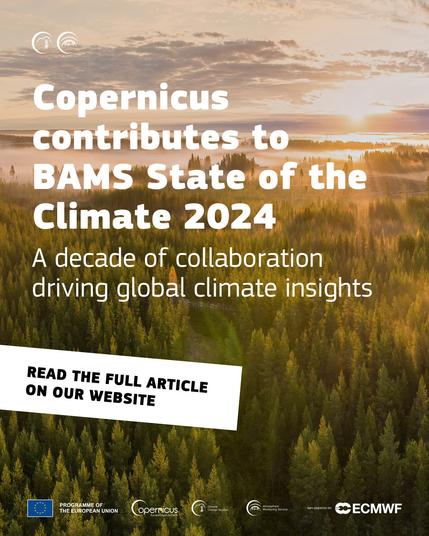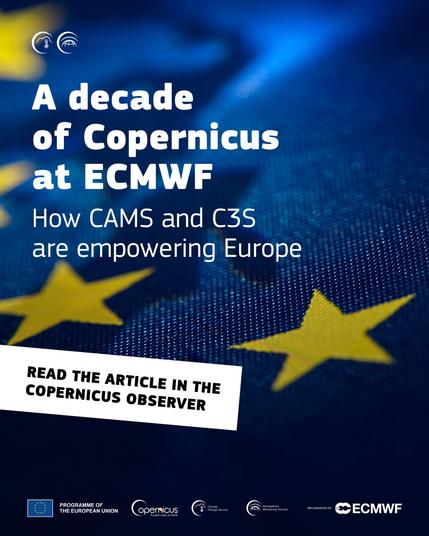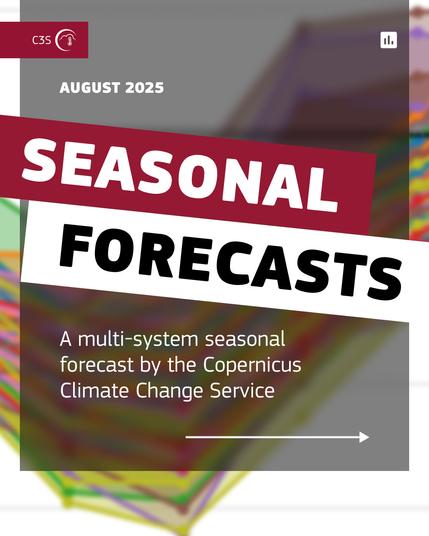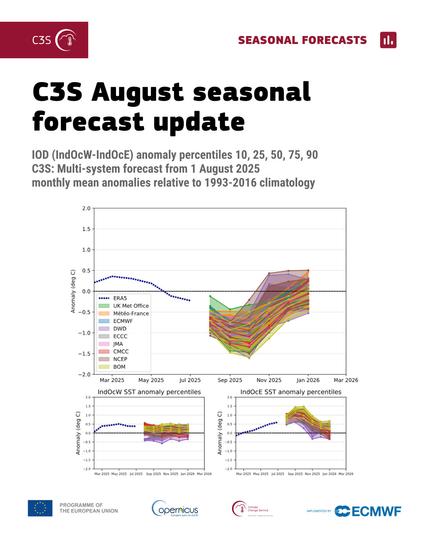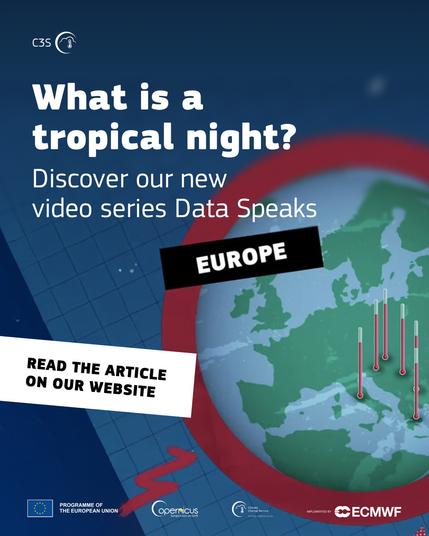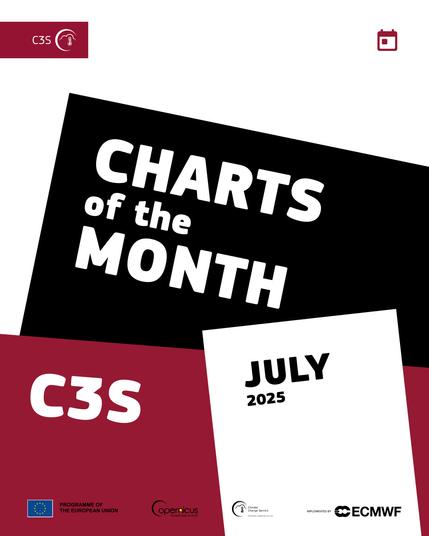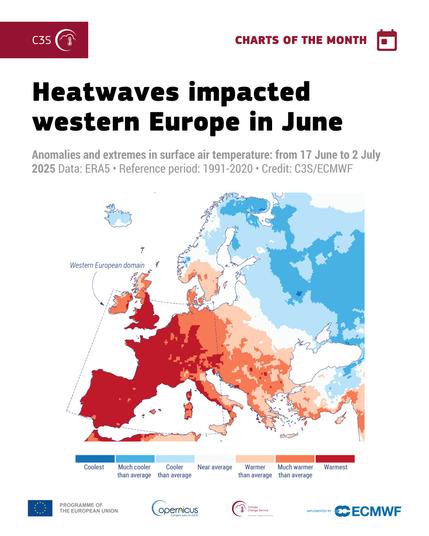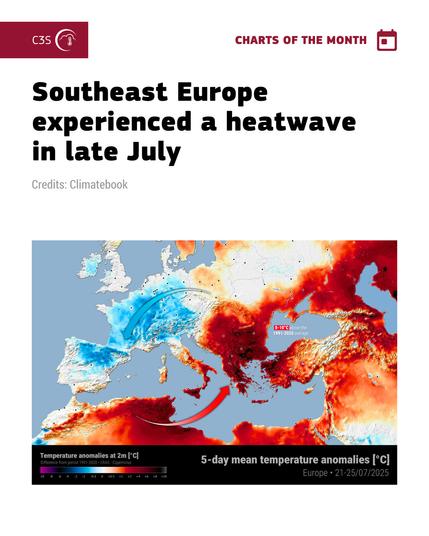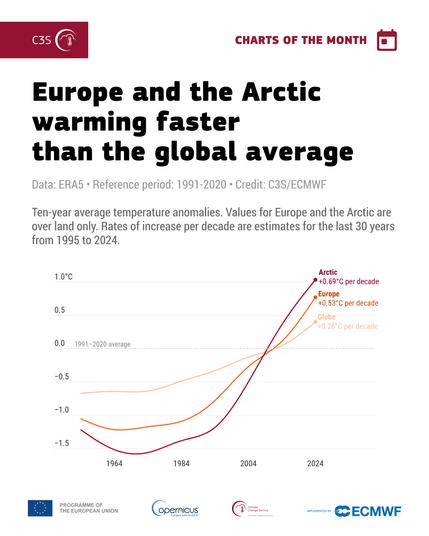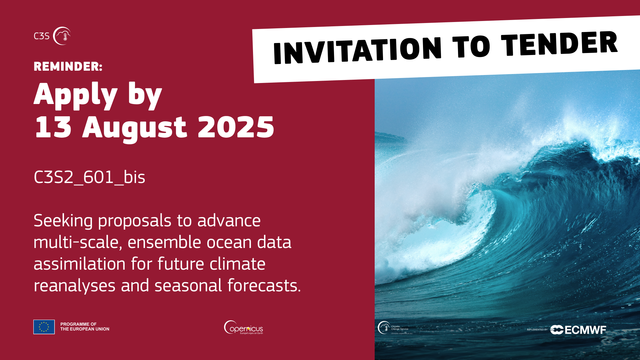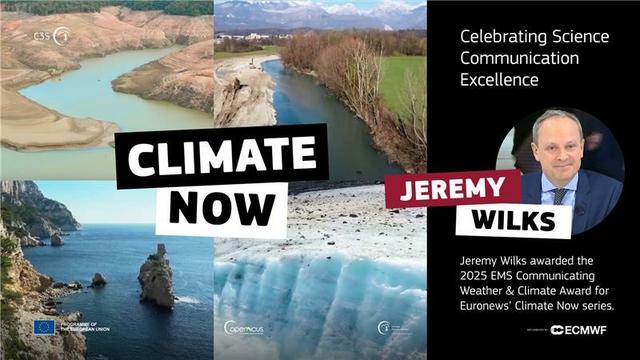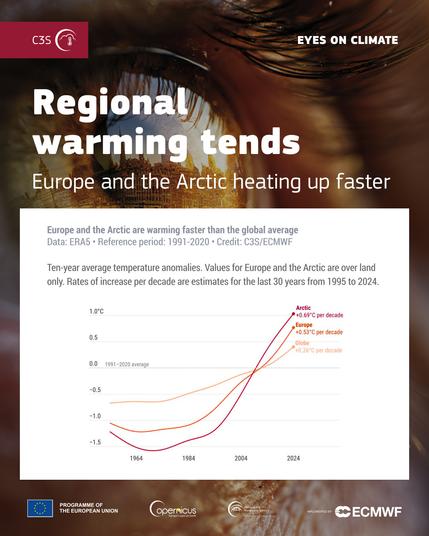📊 🌡️ The August 2025 edition of the #CopernicusClimate seasonal forecast is now available; the multi-system now includes an update to the CMCC forecast system (https://confluence.ecmwf.int/display/CKB/Description+of+CMCC-CM3-v20231101+C3S+contribution).
You can find data and plots from: https://climate.copernicus.eu/seasonal-forecast
Three charts based on #CopernicusClimate data you shouldn’t miss this month:
📈 Anomalies in temperature in Europe from 17 June to 2 July 2025 – C3S
1️⃣ https://bsky.app/profile/copernicusecmwf.bsky.social/post/3ltlywkd5lk2b
Read the article: https://climate.copernicus.eu/heatwaves-contribute-warmest-june-record-western-europe
📈 Heatwave in southeast Europe end of July – Climatebook
📈 Europe and the Arctic are warming faster than the global average – C3S
3️⃣ https://bsky.app/profile/copernicusecmwf.bsky.social/post/3ltys75o2s22m
Read the article: https://climate.copernicus.eu/why-are-europe-and-arctic-heating-faster-rest-world
🔔 Reminder: 3 weeks left to submit tenders to advance multi-scale ocean data assimilation for #C3S climate reanalyses & seasonal forecasts. Deadline: 13 August 2025 https://climate.copernicus.eu/c3s2601bis-advancing-ensemble-based-multi-scale-ocean-data-assimilation-system-climate-applications
Congratulations to Jeremy Wilks, recipient of the 2025 EMS Communicating Weather & Climate Award! His Climate Now series, produced by Euronews in partnership with #CopernicusClimate and #CopernicusAtmosphere, brought scientific data to global audiences.
Watch all Climate Now episodes now on our YouTube channel: https://www.youtube.com/watch?v=PaSIGgD9pE4&list=PLB7XYEK5KkhoC6iBwYob_cO1rBOIcw_Rs
Prof. Jose Manuel Gutierrez on the evolving landscape of climate projections: From regional models to new kilometer-scale datasets, climate science is unlocking insights for a changing world.
Discover more about Climate Atlas: https://atlas.climate.copernicus.eu/atlas
Why are Europe and the Arctic warming twice as fast as the global average? Explore the science behind these regional trends in our latest article. https://climate.copernicus.eu/why-are-europe-and-arctic-heating-faster-rest-world?utm_source=socialmedia&utm_medium=ma&utm_campaign=why-are-europe-and-arctic-heating-faster-rest-world
Prof. Peter Thorne on the importance of sustained Earth observation. Ongoing monitoring and bridging data gaps worldwide keeps climate science robust, advancing forecasting and deepening our understanding of the planet. #CopernicusClimate
Find out more about observation data within #CopernicusClimate, which ranges from historical weather observations to the most recent space-based measurements.
👉 https://climate.copernicus.eu/observations
